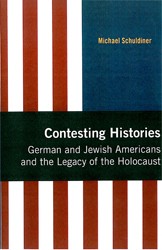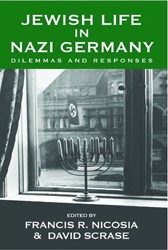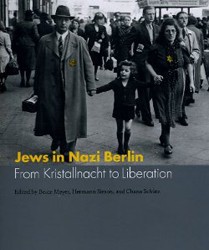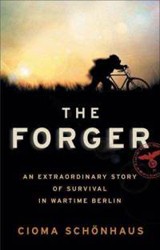Erik Larson, the bestselling author of The Devil in the White City, focuses his meticulously researched new book on the first few years of Hitler’s ascendancy to power as experienced by the newly appointed American ambassador to Berlin and his family. William E. Dodd was a professor of American history at the University of Chicago when President Roosevelt appointed him to that important post. Dodd took his family to Berlin, including his twenty-four-year-old beautiful, charming, and sexually adventurous daughter Martha. Martha Dodd was ultimately entranced by the Nazi revolution — the pomp and energy of the new Germany, the handsome young men of the Third Reich, the lush parties and the intrigue of Berlin. Many men courted her and found her eagerly responsive. Her lovers included Rudolph Diels, the young first chief of the Gestapo; the writer Thomas Wolfe, when he came to Berlin; a German flying ace; a French diplomat; and most important, Boris Winogradrov, who was connected to the Soviet Embassy. “I tried in a self-conscious way to justify the actions of the Nazis, to insist that we should not condemn without knowing the whole story,” she wrote in her memoir. To a friend she said, “We sort of don’t like the Jews anyway.”
In this opinion she echoed the general sentiment that prevailed at home. Public opinion was isolationist and there was a rising tide of anti-Semitism that manifested in the emergence of fascist movements, violence, intimidation, and opposition to opening the doors to German-Jewish refugees. The State Department was filled with anti-Semites like William Phillips, Undersecretary of State, and Wilbur J. Carr, an Assistant Secretary of State, in charge of the consular services, who were inclined to let the Nazis have their way with the Jews. Her father, increasingly skeptical and outraged by what he was witnessing, voiced his concern to a largely indifferent State Department and watched with alarm as Jews were arrested, the press censored, and drafts of new laws that discriminated and ultimately disenfranchised Jews were proposed and implemented. William Dodd, who at first thought that Hitler could be controlled, soon realized that they were living in a “garden of beasts” intent on war, domination, and destruction.
Eventually, Martha also became disillusioned with the Nazis and was recruited by Soviet intelligence, a relationship that continued when she returned to the United States in 1938. She became prominent in Communist causes and fled to Mexico in 1953 when subpoenaed by the House Committee on Un-American Activities.
Larson, a master of historical nonfiction, has written a fascinating book that fleshes out many of the key players in Hitler’s ascendancy to power through the lenses of these “innocents abroad” as they come to realize the dangers of the gathering storm. He provides new insight into the question of how ordinary Germans willingly allowed themselves to be brought in line with Nazi ideology and policy. The book, although carefully researched and documented, reads like a political thriller. It is highly recommended to anyone interested in the rise of the Third Reich and America’s role in that process.





